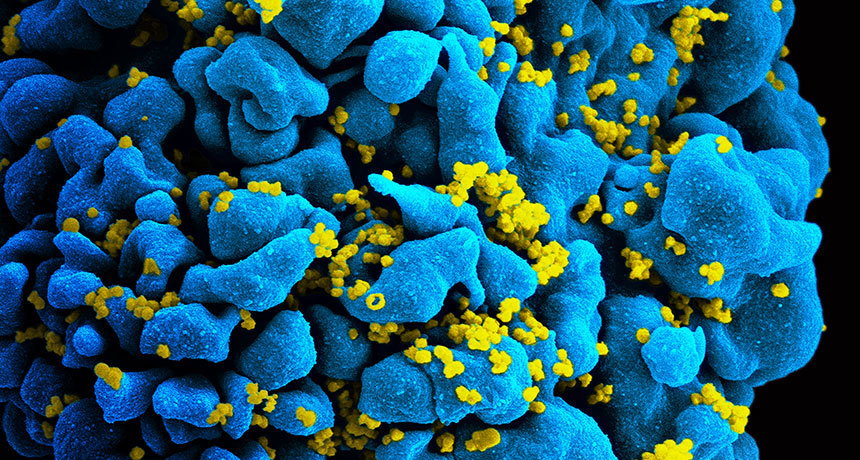Unprotected sex less risky if HIV-positive partner on antiretroviral therapy

Taking a combo of HIV drugs can make unprotected sex a whole lot safer.
Antiretroviral therapy cut HIV transmission between partners to zero, researchers report July 12 in JAMA.
That doesn’t mean there’s no risk, says infectious disease researcher Alison Rodger of University College London. But for heterosexual couples with an HIV-positive member who is on therapy and has low levels of virus in the blood, “the risk is extremely low — likely negligible,” she says. That may also be true for homosexual couples, Rodger says, but her team needs more data to say for sure.
Antiretroviral therapy curbs the amount of HIV circulating in the bloodstream. Scientists knew that HIV-positive people taking this therapy were less infectious than normal, but no one had nailed down their risk of spreading the virus through condom-free, penetrative sex.
Rodger and colleagues analyzed data from 1,166 couples enrolled in an observational study to assess HIV transmission risks. All couples had reported having unprotected sex, and one member of each couple was HIV-positive and on therapy. Researchers tested the negative partner for HIV every six to 12 months.
Among 888 couples eligible for follow-up, researchers didn’t find a single case of partner-to-partner HIV transmission for about one and a half years, despite frequent unprotected sex.